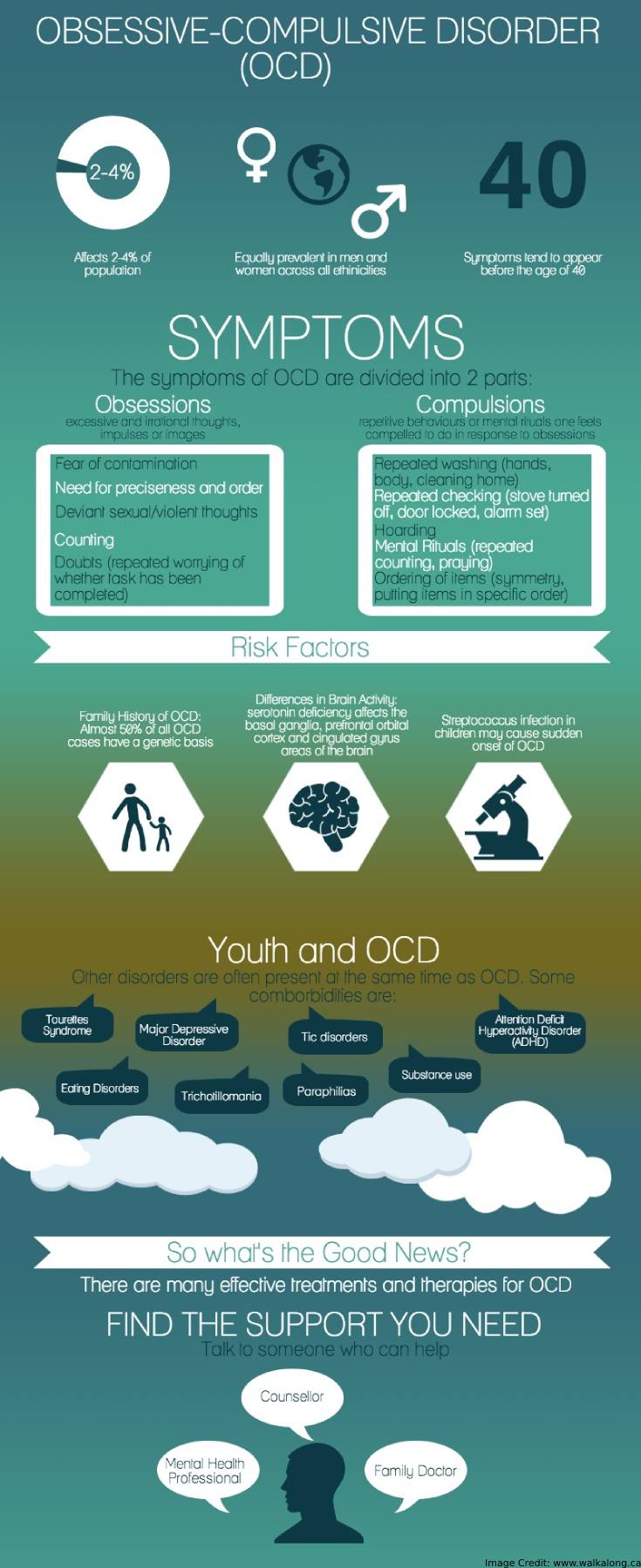
How Is Obsessive-Compulsive Disorder Diagnosed?
Obsessive-Compulsive Disorder is a chronic illness that affects 1 in 40 American adults at some point in their lifetime. Despite the fact that we tend to throw the term “OCD” around, this serious illness is debilitating to its sufferers.
OCD is a lot more serious than simply “thinking about something a lot” and diagnosis and treatment can often be difficult for patients and psychiatrists alike.
What Are The Defining Symptoms Of OCD?
A person suffering from OCD is often tormented by unrelenting thoughts and impulses that lead to uncontrollable behaviors. To understand diagnosis, it’s important to understand the defining symptoms of obsessive-compulsive disorders.
Typically, symptoms are characterized as an obsession or a compulsion and are discussed with a psychiatric team to make a full diagnosis.
An obsession is defined by unwanted thoughts, impulses, and ideas that get in the way of normal thought processes.
A few examples of common obsessions are:
1. The fear of losing or misplacing an object.
2. The fear of germs or contamination of an environment.
3. The fear of harm befalling the patient themselves or their loved ones.
A compulsion is a behavior that a patient repeats to try and control the obsession at hand. This often materializes as:

1. Excessive cleaning or washing of the hands, an object, or an area.
2. Repetitive “checking’ such as touching a light switch, making sure the stove is off, etc.
3. Keeping and in some cases hoarding unnecessary objects.
4. Continuous moving of objects to ensure they’re in perfect order.
Some patients with obsessive-compulsive disorder also experience tic disorders. These motor tics appear as more sudden movements or reactions such as shrugging, blinking, or vocal expressions.
In order to form a treatment plan for a patient, a psychiatrist must identify a patient’s defining symptoms and get an intimate understanding of the obsessions, compulsions, and tics that a patient is experiencing.
What Is The Diagnosis Process?

Like most mental illnesses, the process begins with a visit to the psychiatrist. Diseases of the mind are extremely complex and require a professional treatment plan in order to expect results from treatment.
It’s extremely important for a psychiatrist to do a full psychiatric assessment on a patient. This includes everything from their psychiatric history and previous diagnosis (if any) to interviews with family members who have observed the suspected OCD behavior. Generally speaking, a patient must observe the following:
1. The noted presence of obsessions, compulsions, or tics.
2. The noted obsessions or compulsions are interfering with a patient’s daily life and are causing significant distress to the overall quality of life- whether that be social or occupational.
3. The behaviors are not caused by substance abuse.
4. The behaviors are not more characteristic of another mental disorder.
Due to the fact that OCD shares many symptoms with other mental illnesses, such as anxiety disorders, diagnosis may be difficult for some and require multiple sessions and various testing methods to truly confirm. For others, there is a clear diagnosis after a psychiatric assessment with a doctor.

What Are The Treatment Options?
The 2 most common courses of treatment are psychotherapy and medication.
Psychotherapy is by far the most common treatment method and is often couples with mediation from a psychiatrist. Specifically, cognitive behavioral therapy and exposure and response prevention are the preferred forms of therapy.
ERP therapy is a process where patients are gradually introduced to their fears or obsessions and offering positive coping mechanisms for dealing with said fears.
In terms of medication, many patients are prescribed with SSRIs ( the same drugs that treat depression) to manage symptoms of OCD. In some cases, patients seek alternative solutions for treating ocd through clinical trials and research when medication and psychotherapy have failed to deliver relief.
Whatever the case, it’s important for patients and doctors to work closely together to find a treatment path that truly treats the symptoms.
Though researchers have not found the cause of the obsessive-compulsive disorder, there are numerous studies on the brain abnormalities and environmental factors that are thought to contribute to obsessive-compulsive disorders. Doctors and patients can work together to find these factors and treat them accordingly.
Is There A Cure For OCD?

Unfortunately, there is no cure for obsessive-compulsive disorder. Where some patients will only observe behaviors for a short time period, others will struggle with OCD throughout their entire lives. With proper treatment, patients can minimize the appearance of symptoms and in many cases go years without experiencing symptoms again.
The good news? Doctors are coming to understand more and more about the brain and how it contributes to mental disorders.
As treatment options grow and we come to understand mental illness more intimately, relief will become more readily available and in time, a cure for this mental illness may present.
Do your loved one live with obsessive-compulsive disorder? How did you receive your diagnosis? What do you do to manage your symptoms? Share your story in the comments.
Feature Image- Shutterstock.com
In-Post Image- Shutterstock.com & www.walkalong.ca







